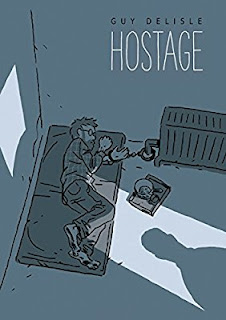I just finished reading Min Jin Lee's 2007 novel Free Food for Millionaires. I loved it so I had to pick up her latest novel Pachinko. It took the author 30 years to write this story and I am glad that she persevered. It was wonderful.
The story involves 4 generations of a Korean family who originated in Pyongyang. The novel covers the early 1900s through the 1980s. After Sunja Kim became a pregnant teen whose father refused to marry her, a Christian missionary lodging at her parents boardinghouse, Isak Baek, offers to marry her and take her to Osaka, Japan where he will be serving a church as its pastor. The family had cared for him while he suffered a bout of tuberculosis during his stay. The family feels this is a generous offer as Sunja and her baby will be ostracized if they stay.
Sunja and Isak leave North Korea for Japan where they will live with his brother Yoseb and Yoseb's wife Kyunghee. Sunja and Kyunghee become fast friends and the newlyweds become accustomed to harsh discrimination from the Japanese who even Japanize their last name to Boku. Koreans are believed to be a lesser sort of people and are treated accordingly by the Japanese. However, life is better for them in Japan because food is more prevalent. Sunja gives birth to a son, Noa, and a year later gives birth to another son, Mozasu. Yoseb and Kyunghee treat them as their own as they are unable to have children.
Noa is smart at school and plans to take college entrance exams so that he can attend university. Mazuso gets into alot of trouble for repeatedly fighting with Japanese classmates at school and is told to go work for a family friend who owns a couple of pachinko parlors. There he blossoms but Noa is unhappy with the arrangement because he feels that it is beneath the family's dignity to be involved in pachinko.
Pachinko is a mechanical game that is both an arcade game and a gambling device which is popular in Japan. It is similar to slot machines in Western casinos but operates differently. Small steel balls are given to the operator to use inside the machine and they are both a bet and a payout. Many pachinko parlors are run by Yazuki (organized crime).
I loved the characters in this novel, especially the women. They had hard lives and were constrained by societal expectations of what a woman can do. Sunja got lucky with Isak. They had a good marriage even though it was short. Kyunghee was barren but her husband stayed with her. Sunja's mother, Yangjin, married Sunja's father Hoonie, who had physical disabilities, so that she would have food to eat but they had a good marriage too and ran a boardinghouse together.
The story moved along at a good pace. The plot grew out of the tumultuous lives of the characters who lived in an uncertain time for Koreans, both in Korea and in Japan. The Baek family's experiences with discrimination kept them at hands length from the Japanese as much as possible. One wrong move by any of them and they could have been deported back to North Korea even though most of the family was born in Japan. It did not make them Japanese citizens and it was difficult for Koreans to obtain Japanese citizenship.
This is a must read.









